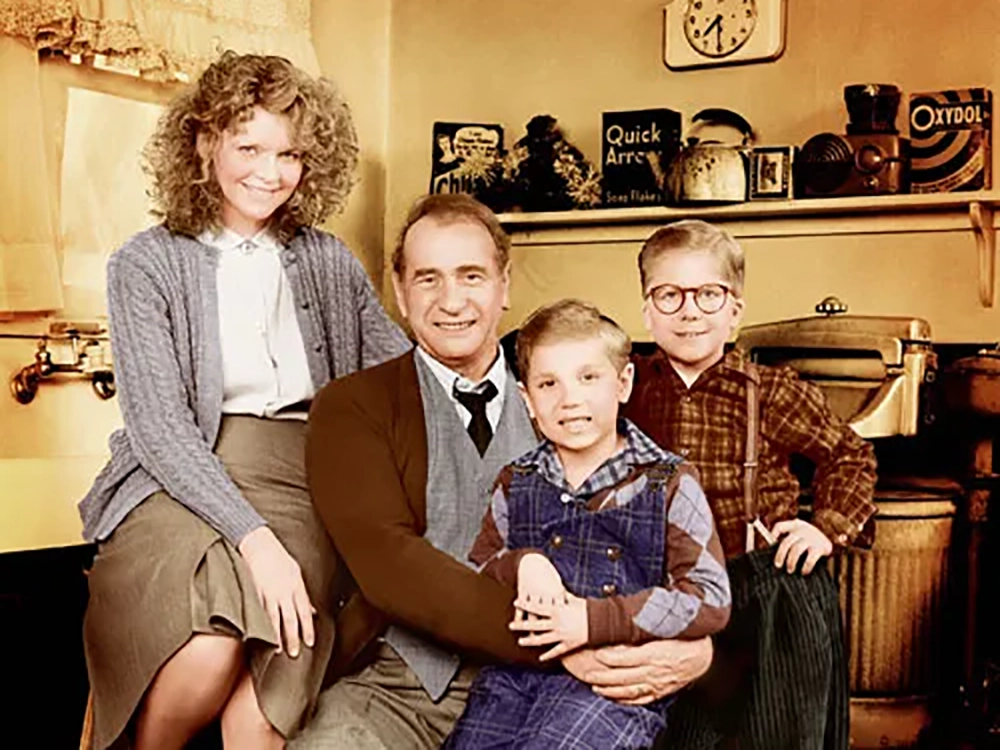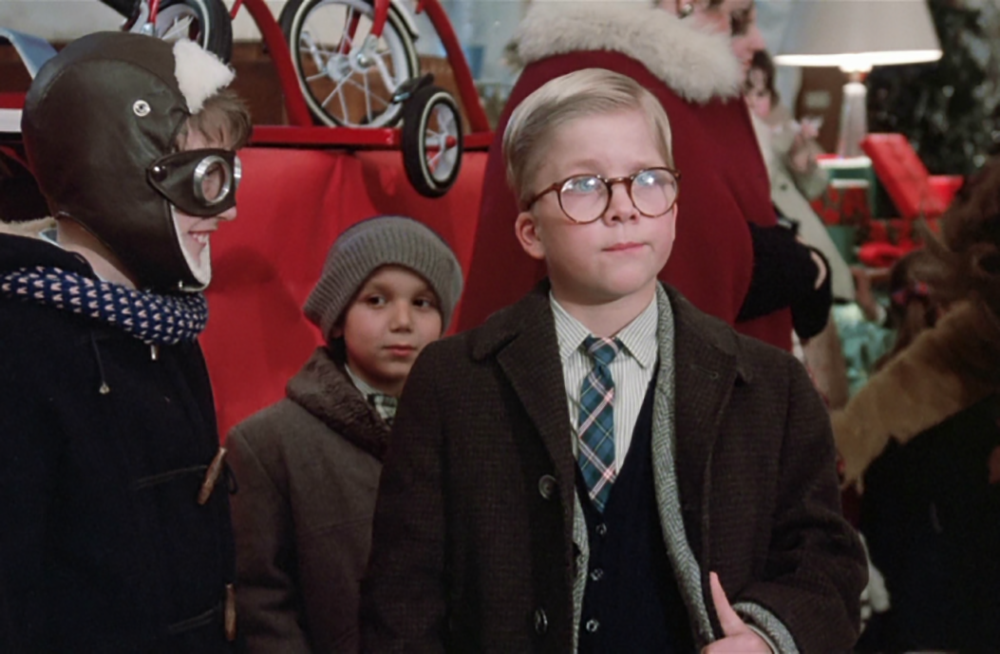Did you know that a man named Jean Shepherd did the narration for the principle character, Ralphie Parker, in this movie? For that matter, did you know that the film was based on a novel Shepherd wrote, titled “In God We Trust, All Others Pay Cash?” Probably not. Watching this movie as a child, I know I didn’t, could only remember the iconic scenes, the winter landscape and suburban setting that serve as its backdrop, and the slice of life it seemed to provide. The film, a Christmas staple, was released in 1983, directed by Bob Clark (“Porky’s,” “Black Christmas”), yet is ‘40s, not ‘80s. And, surprisingly, watching it again this year as an adult, it still holds up as a Christmas classic.
“A Christmas Story” is less about plot, yet paints a definitive picture of a typical, yet mildly dysfunctional family in the 1940s. Sure, it’s narrated by Ralphie, a child of probably ten, on a quest to convince his parents to get him what he wants for Christmas — an official Red Ryder, carbine action, two-hundred shot range model air rifle — as the days to the season inch closer and closer. He’s got a brother, Randy, who exists in this movie as backdrop, occasionally making a scene, flopping around, etc., and two parents, Mr. and Mrs. Parker (no first names here), whom he’s constantly sandwiched between. There’s two friends named Flick and Schwartz, and a teacher, Miss Shields. Oh yeah…and there are two bullies, the lackey Glover Dill and the menacing, raccoon hat-wearing Scut Farkus. These are all obstacles Ralphie must manage on his way to and from home each morning.
A Norman Rockwell Painting Come to Life
This movie excels is in its storytelling and setting, each enhancing the story in unexpected ways. The film takes place in the fictional town of Hohman, Indiana, a place where perfect, snow-covered streets give way to a busy downtown district where department stores are decked with the latest gifts, and carolers hunker round a fire to stay warm during uninterrupted singing. The Parker home is decked out in the same iconic, Norman Rockwell-esque way, from its ‘40s-style kitchen to Ralphie and Randy’s shared bedroom and living room; that latter which Mr. Parker insists on filling with a oversized Christmas tree and a fishnet stocking lamp, a gift from work, what he calls a ‘major award.’
The picture the film wishes to paint is wholly complete, though the characters themselves don’t have any real archs or depth here. The film simply places these four amidst a common host of occurrences, and lets the painting complete itself. It shows wonderfully the tribulations parents often have raising kids and balancing work lives, such as one humorous scene after another where Mr. Parker must fend off dogs on his way to work in the morning, or Mrs. Parker’s exasperation with learning where Ralphie learned that awful curse word.
‘You’ll Shoot Your Eye Out’
Likewise, the movie details life from Ralphie’s point of view wonderfully, as he more or less goes with the flow for most of the movie. His obsession with convincing his parents, his teacher (through written assignment), or even Santa that a Red Ryder is the perfect gift is thwarted at every turn to their admonishment, “you’ll shoot your eye out.” But the film presents this as a serious endeavor, and doesn’t come off as silly as it sounds. Likewise, montages of him running from the bullies, as well as watching his friends dare each other to do various things, line the film’s run-time. Certainly, the film’s most iconic scene involves a ‘triple dog dare’ and a tongue stuck to a flag pole in winter, a scene that disturbed me as a youth and wasn’t much easier to watch as an adult.

The acting in the film is pleasing, even if the characters are somewhat-caricatures of real people. The father who curses but doesn’t realize where his son learned that bad word…the mother who washes her son’s mouth out with soap. Melinda Dillon and Darren McGavin bring these characters to life, as does Scott Schwartz, who plays classmate Flick, and Tedde Moore, who plays the aloof Miss Shields. Peter Billingsley, who plays Ralphie, would go on to star in other films, such as “Iron Man” or “Elf,” but is great here. He carries the movie easily, no easy feat for a child actor. And while not getting much screen time, Zack Ward takes Scut Farkus and runs with him. Only 13 when he did “A Christmas Story,” Ward would go on to star in a number of other films as an adult, my favorite the indie “Aurora Borealis” with Joshua Jackson.
A Classic Christmas Tale
“A Christmas Story” is just a classic. A wide plot you will not find here, but instead a portrait of family life in the 1940s that seems flawlessly done. The scenes are relatable, its characters warm, and its ending brings all the joys of childhood Christmases back, if only for a fleeting moment. This is a movie that ages well. It’s rated PG, is soft enough for kids to watch, but also won’t insult your intelligence as an adult. A pleasing effort by all counts.


